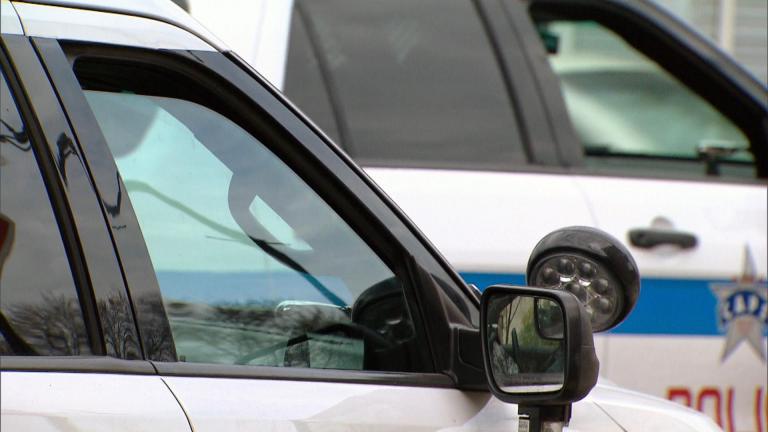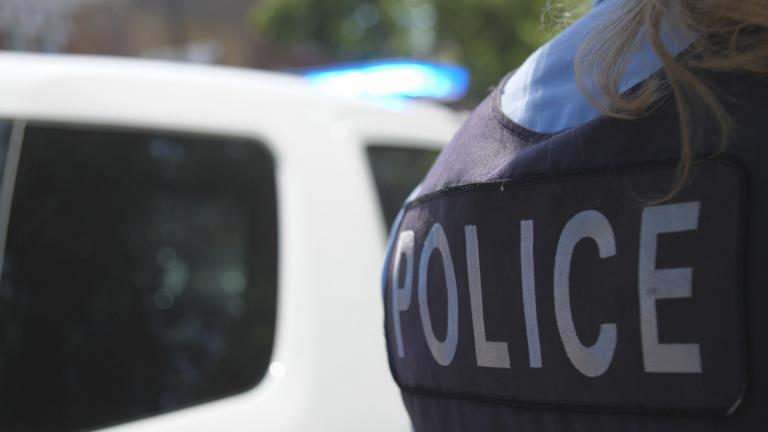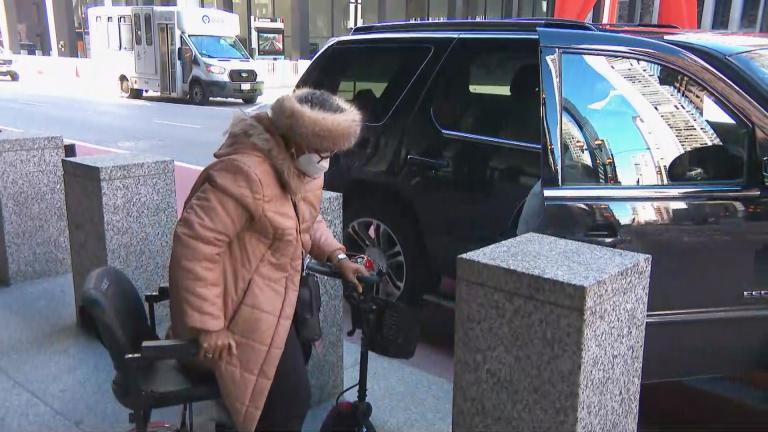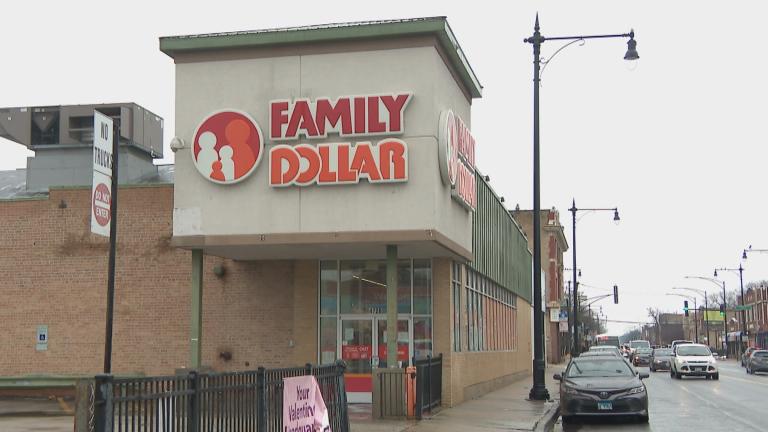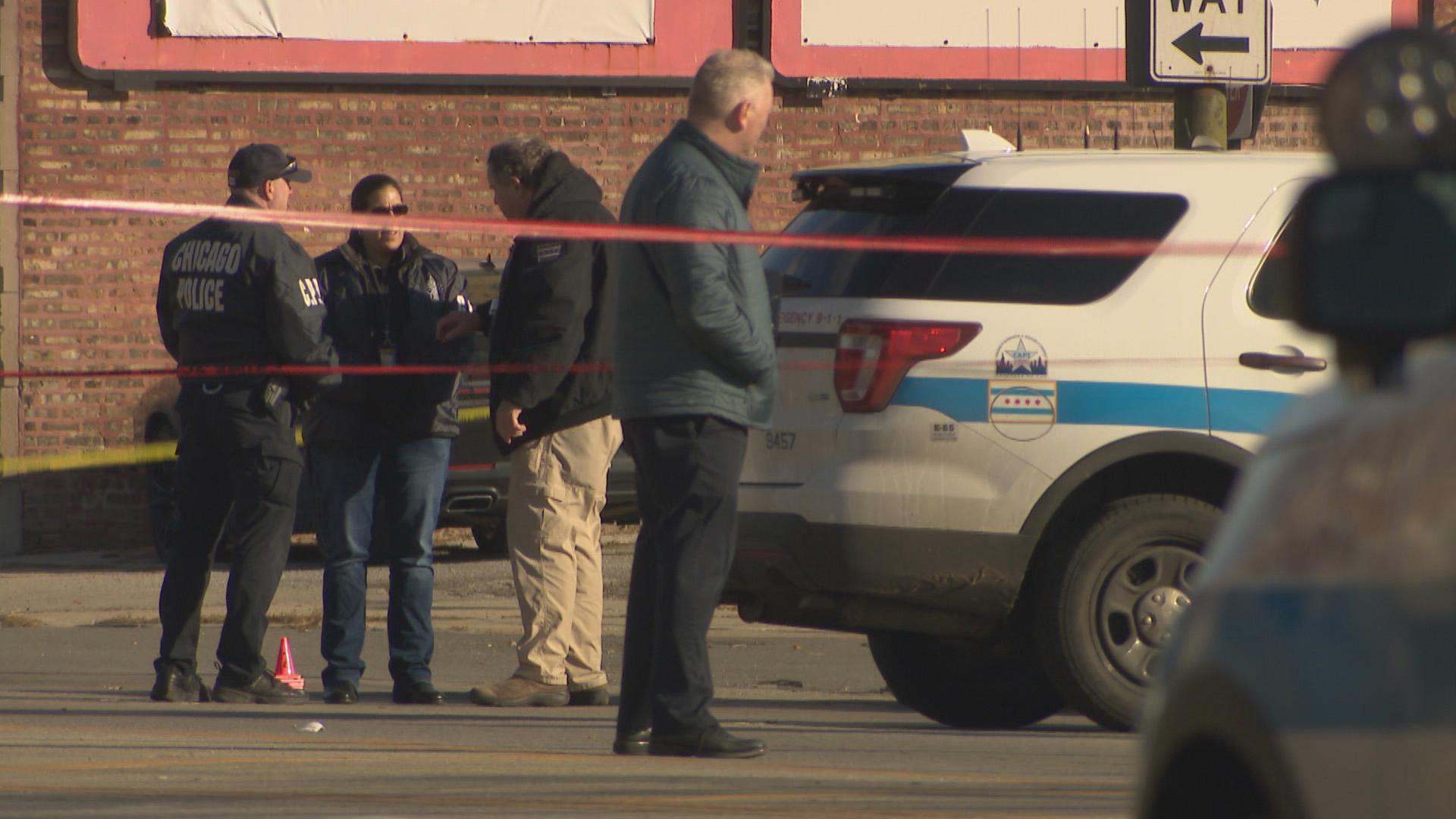 (WTTW News)
(WTTW News)
Long-stalled efforts to put an elected board of Chicago residents in charge of the Chicago Police Department remain mired in debate, as Mayor Lori Lightfoot declined Tuesday to commit to a timeline to create the required police oversight body.
Ald. Chris Taliaferro (29th Ward) convened a brief and unusual meeting of the City Council’s Public Safety Committee on Tuesday to accept revised versions of the competing proposals, neither of which is likely to advance without the support of the mayor. Substitute ordinances are often voted on with little or no notice during City Council committee meetings, as allowed by the City Council’s rules, and it was not clear why Taliaferro called a separate meeting just to handle a procedural step.
Taliaferro did not allow aldermen to debate the proposals, although approximately a dozen members of the public urged aldermen to act quickly, citing the October 2014 police murder of Laquan McDonald and the botched raid in November 2019 that left Anjanette Young naked and handcuffed while pleading for help for 40 minutes.
Taliaferro noted that aldermen have been inundated with calls and emails from Chicagoans urging them to act by supporters of both measures. Taliaferro promised to hold briefing sessions on both proposals this month.
Approximately 30 aldermen support the measure crafted by a coalition of community organizations under the umbrella of the Grassroots Association for Police Accountability, known as GAPA.
Other aldermen support a plan known as CPAC that, as originally proposed, would have given an elected board the power to hire and fire the superintendent. Lightfoot rejected that proposal as too far-reaching.
However, the revised CPAC proposal introduced Tuesday would no longer grant the elected board the power to fire the police superintendent and the chief administrator of the Civilian Office of Police Accountability. Instead, the board could cast a vote of no confidence, sending the matter to the City Council to consider their removal.
The main change to the GAPA proposal would give the City Council the power to create an interim board that would serve until commissioners could be elected in 2022, said Ald. Harry Osterman (48th Ward), one of its chief co-sponsors.
While she was president of the Chicago Police Board, Lightfoot led the Police Accountability Task Force formed by then-Mayor Rahm Emanuel in the wake of the outcry caused by McDonald’s murder by a police officer. The first recommendation of the 2016 task force was to create a “Community Safety Oversight Board, allowing the community to have a powerful platform and role in the police oversight system.”
During the 2019 campaign for mayor, Lightfoot supported the proposal from GAPA, and vowed to implement it during her first 100 days in office.
The proposal appeared to be on the verge of passage in March, when it ran aground amid a dispute between the mayor and GAPA supporters, who want the Community Commission for Public Safety and Accountability to have the final say on policy disputes between the police department and its two oversight agencies. The mayor wants to retain that power.
Despite hopes from supporters that the effort would be reinvigorated by the demand for police reform that surged after the death of George Floyd in Minneapolis police custody, the push remained stalled.
In September, Lightfoot said she was “moving on” from GAPA, putting her at odds with her allies on the City Council. The mayor promised to introduce a third version of a proposal for an elected board to oversee the police department, but approximately 100 days later has not done so.
“As we enter the new year, we are committed to working through the remaining issues with residents and aldermen to ensure we move forward with a proposal that works for our city and its residents,” according to a statement from the mayor’s office on Tuesday.
Lightfoot said Tuesday that she was committed to getting the proposal right, not getting it done quickly.
“This is not easy work. If it was easy, we would have done it already,” Lightfoot said at an unrelated news conference. “But I’m personally involved, and I’m confident we will get to the right place and be able to present something to the City Council for a vote as soon as we are able.”
Other aldermen totally object to the creation of an elected board. However, the federal consent decree governing the operations of the Chicago Police Department requires the creation of an elected oversight board.
The consent decree will reach its second anniversary on Feb. 29.
Contact Heather Cherone: @HeatherCherone | (773) 569-1863 | [email protected]


